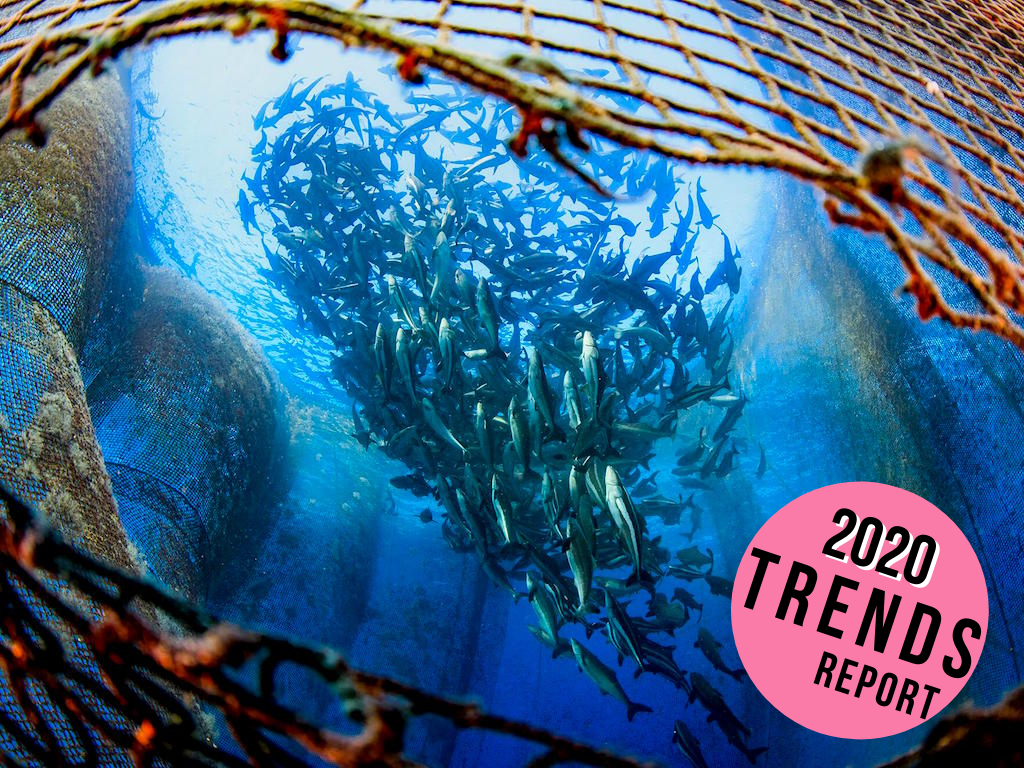2 Mins Read
2020 is the year where seafood as we know it will be dead, primarily due to heightened concerns about not only the environmental impact of consuming fish and other seafood, with health and ethical concerns playing a part too. More people will wake up to the fact that in the midst of our ecological crisis, “sustainable” and “healthy” seafood just doesn’t exist anymore.
Our seas not only provide around half of the planet’s oxygen supply, which helps to regulate our temperatures and fight the effects of global warming, but its inhabitants – marine life – also help to absorb carbon dioxide and balance ocean acidity.
The continued mass demand for seafood for human consumption is accelerating the loss of ocean biodiversity at astonishing rates – it is damaging not only to the hunted species of fish, but to all marine life including many other species such as sharks, dolphins and whales that get caught in “by-catch”. We are close to having no more fish in our oceans – scientists now predict that by 2050, we could be looking at little or no seafood available left in the ocean.
Diners are additionally becoming conscious about the link between seafood and contributing to our global plastic pollution crisis. A major contributor to our plastic ocean is from “ghost nets” discarded by the fishing industry – these are the lost and abandoned fishing nets, lines and traps that amount to a whopping 640,000 tonnes of waste scattered across our seas. These plastics erode over time into tiny particles called microplastics, which are ingested by aquatic life and could end up back into our food chain via human consumption.
Partly in response to all of this, the past decade has ushered in the growing popularity of “sustainably farmed” seafood. The sad truth is that farmed fish is no better for the planet or our oceans. It is incredibly resource intensive and damaging to the environment, taking around 2-3 pounds of smaller fish such as sardines or anchovies to feed the fish, and requiring huge amounts of antibiotics to ward off the diseases and parasites that can quickly spread in the small, enclosed fishing pens.
Moreover, consumers will wake up to the realities of the ethical and health realities of seafood consumption. From a human rights perspective, reports have surfaced about the child labour and slave labour endemic in the global fishing industry. Health-wise, more of us are aware of the traces of potentially toxic microplastics and other contaminants appearing in samples of seafood, thanks to our ocean pollution crisis, including chemical runoff from industrial plants and pesticide use.
From the environmental and ethical impact of the fishing industry to the health and safety concerns around consuming fish and other marine life, 2020 will see the world rethink its relationship to seafood in a big way.
Lead image courtesy of Yen Yi Lee / Coral Reef Image Bank.




